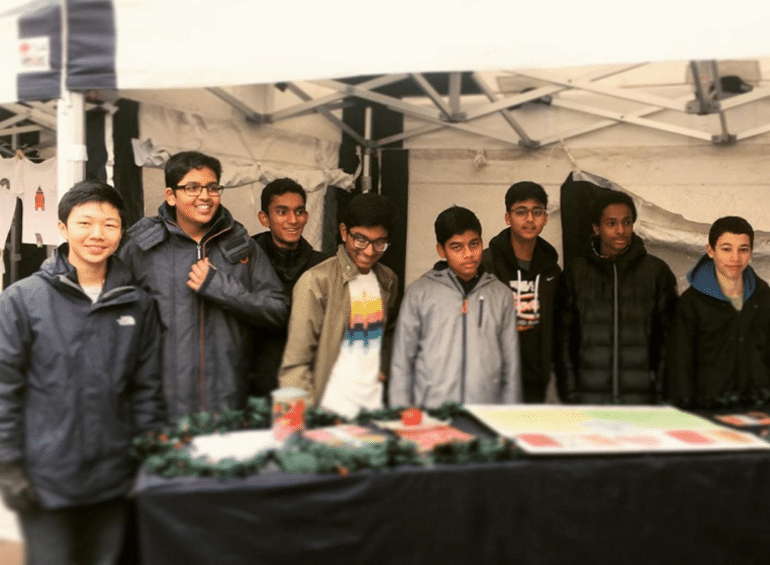
A QE team who tested the commercial appeal of their beeswax-based, eco-friendly product at a Young Enterprise Trade Fair are planning to continue with the venture, even when the competition ends.
 The team, who have named their firm The Green Bee Company, are producing re-usable wraps as an alternative to plastic kitchen film. Managing Director Mansimar Singh, of Year 12, said: “We believe very strongly in the product and in its potential for success.”
The team, who have named their firm The Green Bee Company, are producing re-usable wraps as an alternative to plastic kitchen film. Managing Director Mansimar Singh, of Year 12, said: “We believe very strongly in the product and in its potential for success.”
In addition to utilising natural beeswax for the film and for smaller beeswax sachets, the team sourced their other materials from local producers and also made sure their packaging was 100% plastic-free. “With recent youth activism in favour of sustainability and against climate change, we felt these should be issues our product should address, said Mansimar.
The team took their product to Old Spitalfields Market (before the current coronavirus restrictions) to sell at the Young Enterprise Trade Fair held there. Enrichment Tutor Alex Czirok-Carman said: “The boys worked very hard both in the run-up to the fair and on the day itself. They devoted their lunchtimes and time after school for many weeks to manufacture the product by hand.
“At the fair they sold all day and had a great time talking to the public and to the other teams. I was particularly impressed by how they explained their product to people – they were so confident and assured. They all gained a great deal from the experience.”
Mansimar agreed: “Many of the challenges of running a business are well-documented so when, as a team, we came up with a solution to an issue – that sense of achievement was unmatched. The selling experience was rewarding.”
To fulfil the Young Enterprise requirements, the boys had to establish a brand, create a scrapbook and generate an online presence for their company. “They chose the name The Green Bee Company because they wanted both the name and their product to have a message and a story. This was also reflected in their excellent logo,” added Mr Czirok-Carman.
The profits the boys made from the event at Old Spitalfields Market have been ploughed back into the business.
The Green Bee Company comprises:
Mansimar Singh – Managing Director (Year 12)
Ansh Jassra – Financial Director (Year 10)
Sudhamshu Gummadavelli – Marketing (Year 10)
Abhiraj Singh – Marketing (Year 10)
Haipei Jiang – Marketing (Year 10)
Anubhav Rathore – Product Development (Year 10)
Dylan Domb – Product Development (Year 10)
Yashaswar Kotakadi – Product Development (Year 10)
Ashwin Sridhar – Team member (Year 10)
Heemy Kalam – Team member (Year 10)
Shreyank Thottungal – Team member (Year 12)
Siddhant Kansal – Team member (Year 11)
- Update 9th May 2020: The Green Bee team won the Best Team Journey award at the North London Regional Finals, which were held virtually. The award will be presented to the School once the lockdown period is over.Judge Or Paran, a Vice President at Citi Bank, said the judging panel had found the QE team to have done a “really great job”, with “fantastic work that was evident throughout the duration of the competition” – work that was “well-coordinated and with beautiful attention to detail”.
The overall Best Company award went to a team from The Henrietta Barnett School, who progress to the next round.

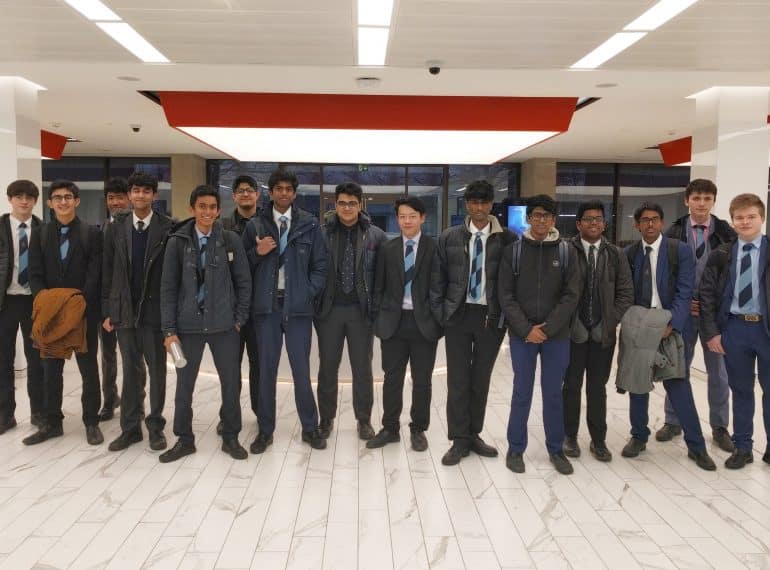
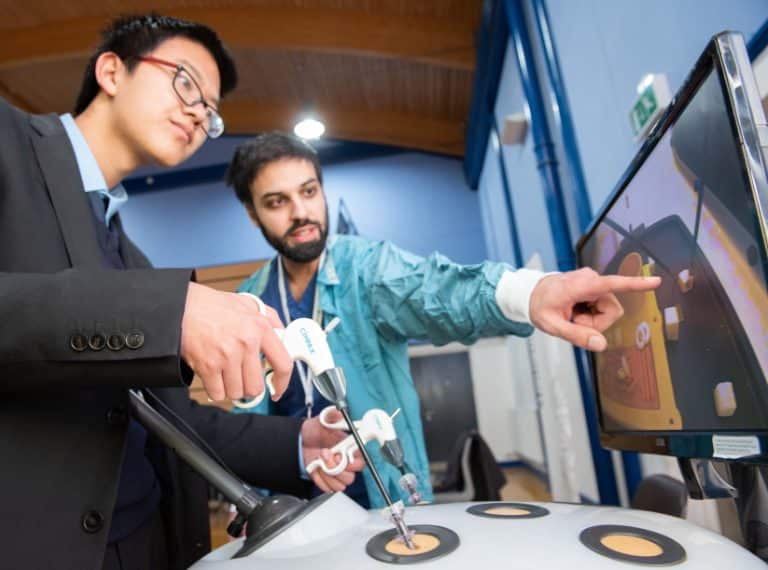
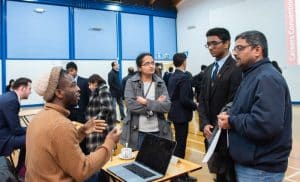 The convention – a major event in the QE calendar – this year featured an increased number of talks. The speakers for these were among representatives of 35 companies and organisations attending in total, including Old Elizabethans and other visitors.
The convention – a major event in the QE calendar – this year featured an increased number of talks. The speakers for these were among representatives of 35 companies and organisations attending in total, including Old Elizabethans and other visitors.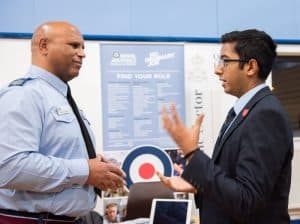 Headmaster Neil Enright said: “It was another tremendous evening. I am grateful to all those who helped our current pupils in this way, whether old boys or other friends of the School. The boys benefit immeasurably from the advice that they receive, not least because seeing alumni thriving in their various careers is in itself a source of inspiration and confidence to them.
Headmaster Neil Enright said: “It was another tremendous evening. I am grateful to all those who helped our current pupils in this way, whether old boys or other friends of the School. The boys benefit immeasurably from the advice that they receive, not least because seeing alumni thriving in their various careers is in itself a source of inspiration and confidence to them.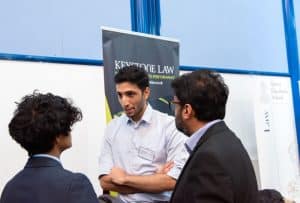 • Dental surgeon Dr Nirmal Wilwaraarachchi (OE 1996-2002) on dentistry
• Dental surgeon Dr Nirmal Wilwaraarachchi (OE 1996-2002) on dentistry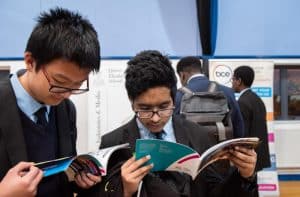 The evening also benefited from experts attending from organisations with which the School has strong partnerships, such as the National Citizen Service (whose summer programme is always popular with Year 11 boys), the STEM Ambassadors programme and the RAF.
The evening also benefited from experts attending from organisations with which the School has strong partnerships, such as the National Citizen Service (whose summer programme is always popular with Year 11 boys), the STEM Ambassadors programme and the RAF.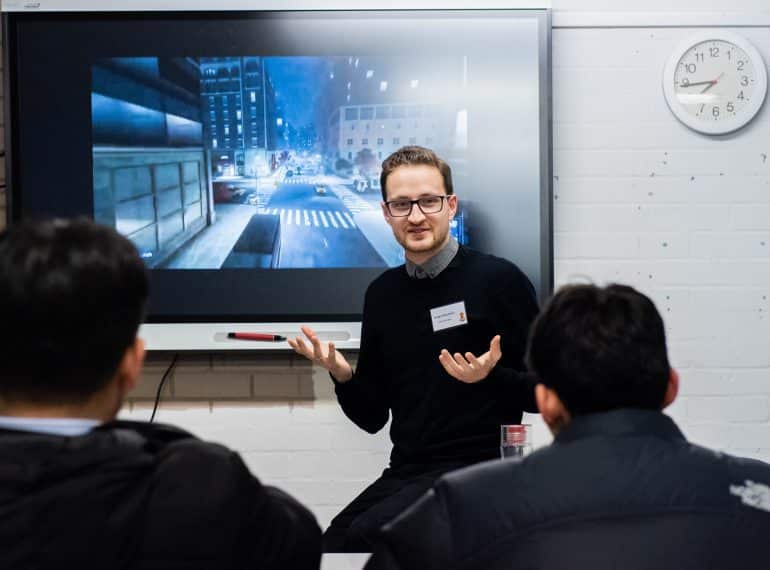
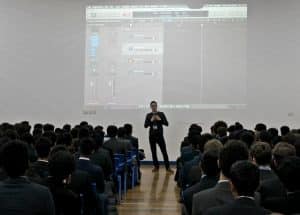 But, he told the boys, he had no regrets about his chosen path, since it had put him in control of what he was doing. He loves practising music six-to-eight hours a day as he finds it therapeutic and it gives him direction. He had been true to himself, his career giving him opportunities to learn from, helping him to mature and making him happy. “It’s more about the journey, rather than the end game. Every day I get a little bit better at something, I progress.
But, he told the boys, he had no regrets about his chosen path, since it had put him in control of what he was doing. He loves practising music six-to-eight hours a day as he finds it therapeutic and it gives him direction. He had been true to himself, his career giving him opportunities to learn from, helping him to mature and making him happy. “It’s more about the journey, rather than the end game. Every day I get a little bit better at something, I progress.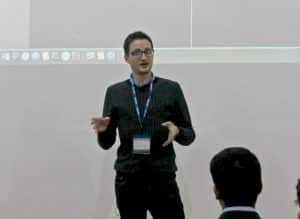 He is a regular supporter of the School and gave a presentation on sound design in video games at last year’s Year 11 Careers Convention.
He is a regular supporter of the School and gave a presentation on sound design in video games at last year’s Year 11 Careers Convention.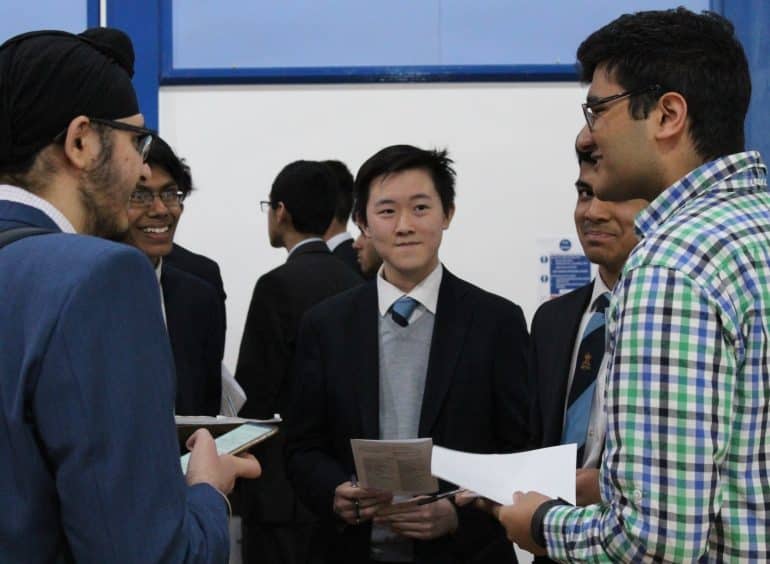
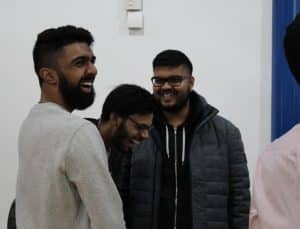 With fresh experience of university life, and with the Sixth Form and university application process such a recent memory, they were well-placed to give some first-hand advice to current Year 12 pupils.
With fresh experience of university life, and with the Sixth Form and university application process such a recent memory, they were well-placed to give some first-hand advice to current Year 12 pupils.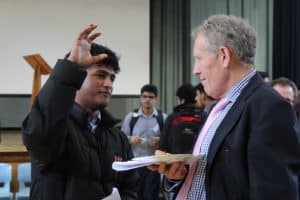 “Staff always enjoy the opportunity to hear how these recent leavers are getting on – even if it can sometimes be hard to recognise some, with their ‘civilian’ clothes, beards and new, non-QE-approved hairstyles!”
“Staff always enjoy the opportunity to hear how these recent leavers are getting on – even if it can sometimes be hard to recognise some, with their ‘civilian’ clothes, beards and new, non-QE-approved hairstyles!”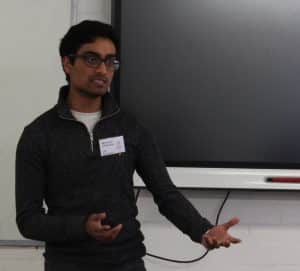 The Year 12 boys were encouraged to be quite specific with their questions to the alumni, asking, for example whether there was anything the students wished someone had told them before they applied.
The Year 12 boys were encouraged to be quite specific with their questions to the alumni, asking, for example whether there was anything the students wished someone had told them before they applied.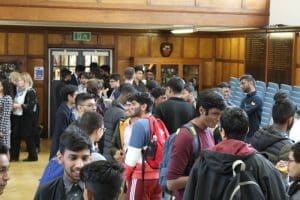 pursue after university, or what other paths they might want to take upon leaving the School.
pursue after university, or what other paths they might want to take upon leaving the School.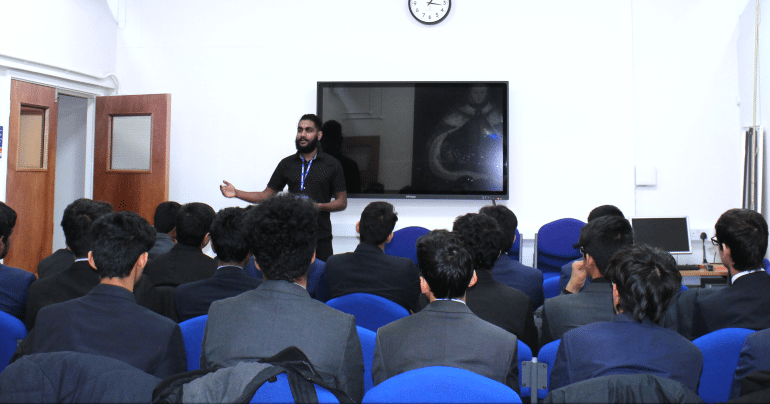
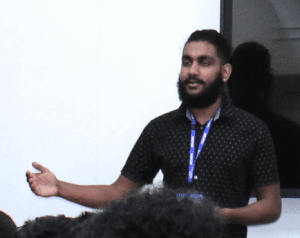 Valavan Ananthakumaraswamy OE (2009-2016), who chose to follow a mixed Liberal Arts programme for the first two years of his degree, told the current QE pupils that he had been particularly attracted by the wide range of subjects available through the US university system and by the closer relationships with professors.
Valavan Ananthakumaraswamy OE (2009-2016), who chose to follow a mixed Liberal Arts programme for the first two years of his degree, told the current QE pupils that he had been particularly attracted by the wide range of subjects available through the US university system and by the closer relationships with professors.